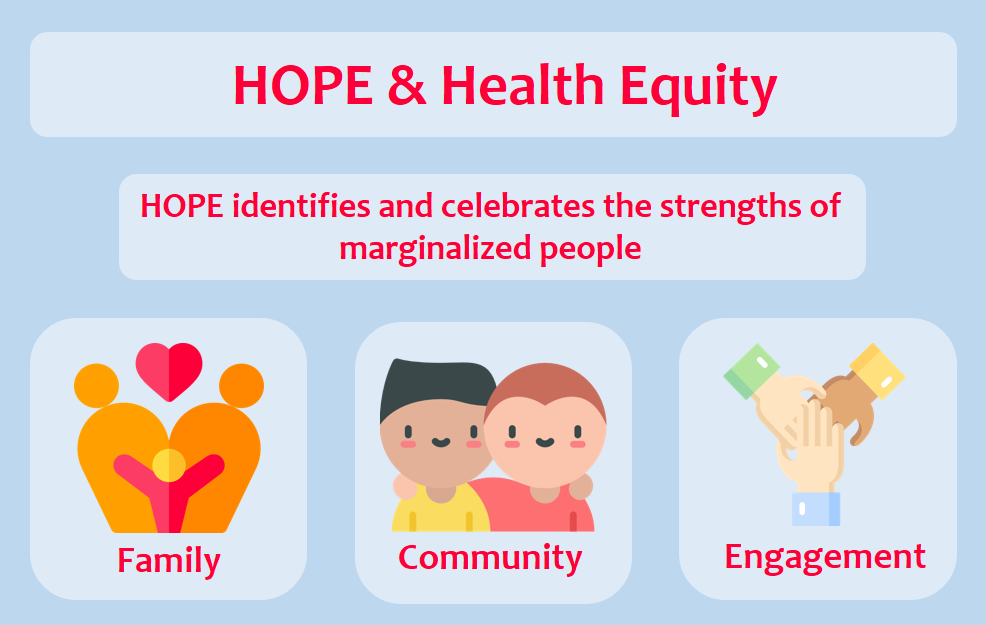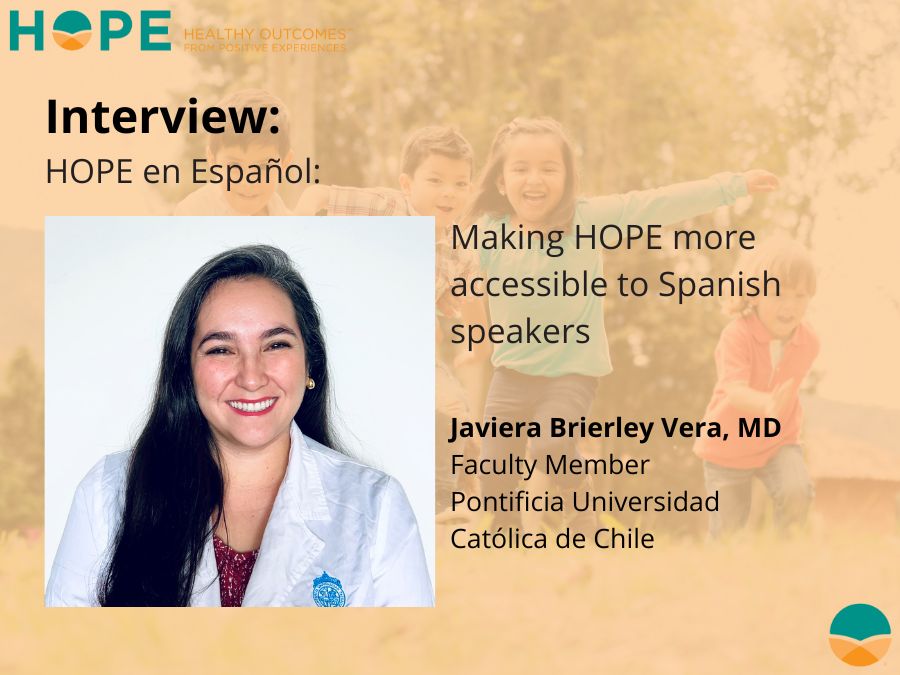
As described in Dina’s recent blog, our team just returned from California. The issue of health equity arose in our discussions; this blog addresses how we think about HOPE and equity.
HOPE (Healthy Outcomes from Positive Experiences) arises from a clear equity focus. Many marginalized people have strong family and community connections, as well as inner strengths that power resilience and healing. The language of HOPE identifies and celebrates these strengths and provides a positive context for examining the effects of past trauma and current challenges.
The original ACEs report did not consider the effects on children of racism, war and dislocation, or the widespread and lasting effects of the mass incarceration of young black men, on the men or their families. Wendy Ellis and others have pointed out the roles of such adverse community-wide experiences that contribute to individual trauma and toxic stress.
Many years of research – and lived experience – demonstrate the power of human connection, civic engagement, and supportive environments in supporting family life and healthy development. Each of us knows of individuals with a traumatic past who is now actively engaged in a community, and who maintain and provide stable social and emotional support for others. HOPE can highlight the positive family and community experiences that set the stage for resilience and recovery. These factors move beyond the individual family, and include the environments in which children live, learn and play.
Equity-based application of the building blocks of HOPE – Healthy Outcomes from Positive Experiences – demonstrates the scientific basis for how we can, as a society, improve health in the face of adversity by identifying and growing those factors that promote resilience and healing.


